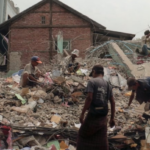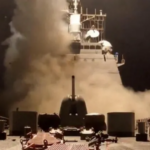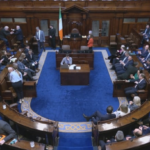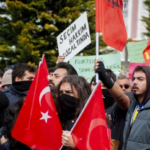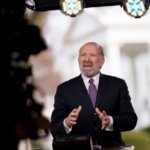Hamas has accused Israel of committing “the war crime of collective punishment” after aid deliveries to Gaza were blocked for a seventh consecutive day. The group claims that the blockade, which has halted vital food, medical supplies, and shelter, is not only punishing Palestinian civilians but also affecting Israeli hostages still held in Gaza.
On Sunday, Israel announced the suspension of aid deliveries until Palestinian militants accepted its terms for an extension of the truce, which had brought relative calm after 15 months of conflict. The first phase of the ceasefire, which ended on March 1, allowed the delivery of essential aid, and saw Gaza militants release 25 hostages and 8 bodies in exchange for around 1,800 Palestinian prisoners held in Israel.
Despite the end of the ceasefire’s first phase, Israel has expressed its desire to extend the truce until mid-April, while Hamas insists on moving to a second phase aimed at achieving a permanent end to the war. A Hamas statement accused Israeli Prime Minister Benjamin Netanyahu of “starving” over two million Palestinians in Gaza by blocking humanitarian assistance. It further stated that the lack of aid was also impacting the Israeli hostages held by Hamas.
The Palestinian group argued that Netanyahu is “fully responsible” for the consequences of the aid blockade and accused him of showing indifference to the fate of the hostages.
International human rights experts have also condemned Israel’s actions, calling the blockade a form of “weaponising starvation.” The United Nations’ human rights experts reminded Israel, as the occupying power, of its obligation to ensure the delivery of sufficient aid to Gaza.
In the midst of this crisis, foreign ministers from France, Germany, Italy, and Britain have expressed support for a $53 billion Arab-backed plan for Gaza’s reconstruction. The plan, which was developed by Egypt, aims to rebuild Gaza without displacing Palestinians. The initiative has received widespread backing in the Arab world but was rejected by former U.S. President Donald Trump.
Meanwhile, more than 50 freed Israeli hostages have called on Netanyahu to implement the ceasefire agreement fully and expedite the release of those still held in Gaza. In a letter shared on social media, the hostages urged the Israeli government to act swiftly, emphasizing the danger of returning to conflict for those still trapped in Gaza. This plea came as Hamas released a new video showing one of the captives, Matan Angrest, urging Israel to honor the ceasefire terms.
As the situation remains tense, Israeli airstrikes continued in Gaza despite the ceasefire, with the military targeting individuals allegedly attempting to retrieve a drone that had crossed into Gaza from Israel. The conflict continues to unfold, leaving the fate of both hostages and civilians in the region uncertain.









